MeditationMeditation for BeginnersThe Noble Truth of the Origin of Suffering # 3The Lord Buddha compared craving to the resin of the persimmon tree or varnish which are some of the stickiest forms of sap.Commentorial Metaphors for Craving
1. Craving compared to resinThe Lord Buddha compared craving to the resin of the persimmon tree or varnish which are some of the stickiest forms of sap. Anything which touches such resin will be stuck firmly. In the same way, the resin of craving sticks in our minds forcing us to attach to the things we love, indulge our emotions to the point we have no wish for anything else. The firmness with which craving attaches us is like a monk who has still not managed to attain transcendental [lokuttara] states of mind and who is thus still attached to his robes, bowl and other requisites. That living beings are obsessed with the sense-desire and sense objects, and seek pleasure from images, sounds, perfumes, tastes and touches, all derives at root from the action of craving.2. Craving compared to a snare or a prisoner’s chainsMost people try to pro9cure happiness from the pleasures of the five senses with the assumption that whenever they are able to gain their fill of sense pleasure, they will be truly satisfied. In the search for satisfaction, those people have to continue being born and reborn in the Cycle of Existence, and are unable to protect themselves from the hardship of existence birth, old age, sickness and death because of the action of craving.existence birth, old age, sickness and death because of the action of craving.
Those who search for happiness via sense pleasure only experience happiness at the moment before suffering manifests itself. As soon as suffering becomes manifest, such people are often so shocked that they cannot even control themselves like a rabbit caught in a hunter’s snare which bounds and throws itself backwards and forwards out of fear of death at the hunter’s hand. Craving is like the hunter (who sets the snare) and those subject to craving are like the rabbit. The edge of the forest where the rabbit lives is like the pleasures of the five senses. For as long as the rabbit can run around freely in the wood, it feels that life is happy and that searching for happiness from the five senses is justified. However,, when it gets caught in the snare, it is terrified in the face of death. Similarly, the unenlightened person, still under the influence of his defilements, becomes ensnared in the Ten Fetters [samyojana] and therefore cannot escape the suffering of birth, old age, sickness and death.Those who are still ensnared in craving will continue to have to endure the suffering of being born and reborn in the Cycle of Existence without end. Thus, the wise expend all efforts to remove themselves from craving and give craving no further opportunity to ensnare them in sense pleasures. They set their aims on Nirvana which is free from all greed, hatred and ignorance and which is the embodiment of true happiness and freedom from suffering. They strive to de velop the wisdom of attainment of attainment of arahantship and to extinguish craving completely.Even though snared are usually made of tough material, there is no snare as tough as that of craving. Even though a prisoner is shackled with iron or chains, Even though a prisoner is shackled with iron or chains, wooden stocks or ropes, his chances of escape are more than his chance of escapine from craving. If a prisoner wants to cut himself free from conventional fetters all he needs to find for himself is a aharp cutting edge. However, for the fetters of craving, the sharpest knife cannot help. The wisdom of the attainment of arahantship. Those who wish to endow themselves with the sword of the arahat’s wisdom need first to forgo attachment to sense pleasure, and must strive in the cultivation of the Precepts, practicing dhutanga austerities and meditation. Only when these virtues have been fully developed can the sword of the arahat’s wisdom be attained, allowing the practitioner to cut away the fetters of craving for good.The physical body is said to be constantly sick because it is a crossroads for all kinds of suffering.
3. Craving compared to a spiderThose who are still attached to sense-pleasure are vulnerable to the temptations of desire and anger and ignorance and are wont to be swept away by the currents of craving. They are unable to find a way to slip through craving’s net. In this sense, craving is just the same in the way it traps living beings as a spider which spins a large web by which to trap small insects.When a spider has finished spinning its web, it is wont to lie in wait at the centre. When other insect get caught in the web, they awake the spider which comes quickly to suck its victim dry. Its appetite satisfied, the spider returns to its place at the centre of the web-it has no need to go anywhere else. In just the same way, those who are attached to sensedesire and carried away by their craving, and who do nothing but please themselves, never remove themselves from craving. Like the spider which spends its whole life in its web. If the spider were wise, it would cut itself free from the web of craving with the sword of the arahat’s wisdom once and for ever.The wise see the body as no more than excrement
The wise of old, trained themselves to see the filth and impurity of the human body in order to purge themselves from the sensual desire in their minds. They constantly remind themselves that the physical bodyis impermanent, fashioned from its 300 components with craving as the maker and packaged in a bag of skin. When the body is ornamented, if viewed only from the outside, it looks attractive enough but if you consider what the body is like from the inside too, you will soon see that the majority of the body is in fact revolting, smelly, impure, repugnant and filled with excrement, mucus and urine. In reality, the body is no more beautiful than a huge from nine wounds (the bodil openings). Nonetheless, the body remains attractive to those who lack mindfulness and wisdom and who are blinded by their defilements.The body is riddled with the suffering of old age and dying.The Physical Body is the Crossroads for Suffering
The physical body is said to be constantly sick because it is a crossroads for all kinds of suffering. Anyone who has to maintain their body has to tend the body’s sicknesses day and night. The body cannot even stay still in a single position for long without suffering so the owner has to keep shifting position to cope with the discomfort. Thus the physical body is said to have a constant disease. Those who are wise will use the indications of deterioration in their own body to wake themselves up to the fact that the body can offer the spirit no true refuge.The Physical Body is a Storehouse of UnwholesomenessThe body is riddled with the suffering of old age and dying. It is our physical wants that are at the root of all our stubbornness, pretence and ingratitude. The body is also the breeding ground for illnesses. Just as a storehouse, made of breeding ground for illnesses. Just as a storehouse, made of daub and wattle is used to store various sorts of grain, the body built on its skeleton and covered with sinews and skin is the storehouse for sickness, death, stubbornness, pretence and all forms of unwholesomeness. The wise therefore reflect and are sobered by the impermanence of the body.the mind to purity renouncing the so-called ‘pleasures’ derived from sense pleasure and sense-objects in order to effect one’s own salvation.
The Nine Supreme Transcendental Attainments
In contrast to the impermanence of the physical body, transcendental attainments, comprising the Four Paths, the Four Fruits and Nirvana, are beyond the reach of the deterioration of old-age, sickness and decay. These transcendental attainments can bring the attainer only happiness and prosperity. The Lord Buddha and all those who attained Buddhist sainthood for themselves all praised the nine transcendental attainments as supreme as being the total embodiment of true happiness, free from all suffering. True happiness can beattained by any one reaching the nine transcendiment of true happiness, free from all suffering. True happiness can be attained by anyone reaching the nine transcendental attainments. They will go beyond all vengefulness, suffering and will no longer have any need to strive for happiness via the senses.Forgo Sensual Pleasure to Gain LiberationThose who are still thick with defilements are wont to suffer physically and spiritually because the sensual pleasures from which they try to derive happiness are themselves of the nature of suffering. The suffering of Such people, at root comes from their search for sense-pleasure and sense-objects. Even the suffering that comes to us from unjust government, robbery, fire and flood which affects all in the Three Spheres, could not affect those people who took no happiness from sense-pleasure and sense-objects.Thus one should strive with diligence to minimize hankering after sense to sense pleasures but cultivating the mind to purity renouncing the so-called ‘pleasures’ derived from sense pleasure and sense-objects in order to effect one’s own salvation.
The Noble Truth of the Origin of Suffering # 3
The Lord Buddha compared craving to the resin of the persimmon tree or varnish which are some of the stickiest forms of sap
6490 ครั้ง
ปิดการแสดงความคิดเห็น


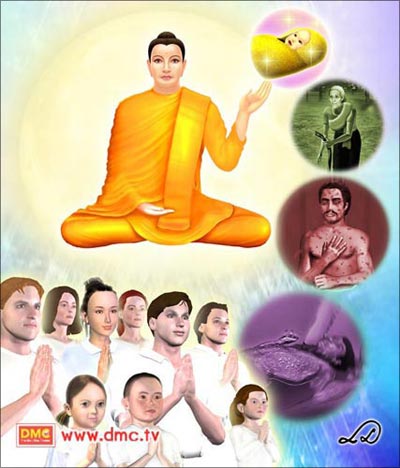



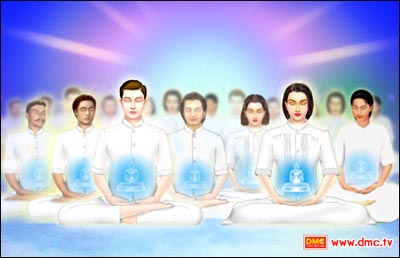
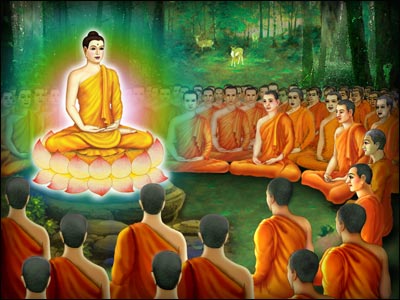

![The Noble Truth of Suffering : 6. Lamentation [parideva dukkha]](https://images.dmc.tv/article/images/cover/1594748934.jpg)


![The Noble Truth of Suffering : 9. Bemonaing [upayassa dukkha]](https://images.dmc.tv/article/images/cover/6137395293.jpg)
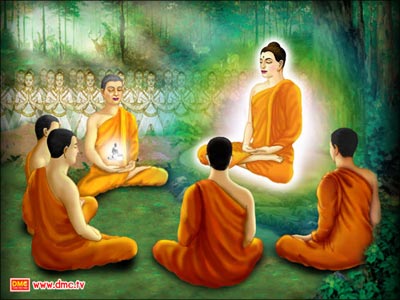
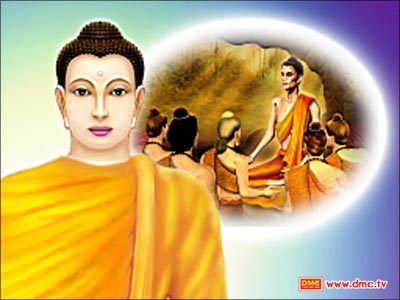
![The Noble Truth of Suffering : 7. Pain [dukkha dukkha]](https://images.dmc.tv/article/images/cover/9472287856.jpg)